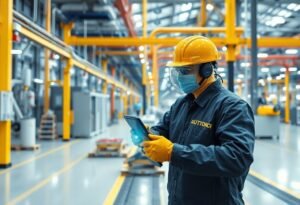The advent of self-driving cars is pushing the boundaries of technology and innovation. Their impact goes beyond just transforming transportation; they hold the potential to reshape environmental policies dramatically. In this article, we will explore how autonomous vehicles are influencing environmental legislation and sustainability efforts.
The Role of Self-Driving Cars in Reducing Emissions
Self-driving cars are revolutionizing the way we think about our personal transportation choices. Equipped with advanced technology, these vehicles can optimize driving patterns to reduce fuel consumption and greenhouse gas emissions. For instance, autonomous vehicles can communicate with each other to maintain efficient traffic flow, significantly decreasing stop-and-go traffic which is a major contributor to urban pollution. As cities begin to adopt regulatory frameworks, they could mandate the integration of autonomous technology to achieve set emissions targets.
Influencing Urban Planning and Infrastructure
As autonomous vehicles become more prevalent, urban planning approaches must evolve. Cities may choose to invest in infrastructure optimized for self-driving technology, such as dedicated lanes and smart traffic signals. This transition could lead to sustainable urban environments where space traditionally reserved for parking can be repurposed for green areas. Forward-thinking policies can encourage the development of green spaces and pedestrian zones, promoting a reduction in individual car usage.
Policy Implications and Regulatory Considerations
Governments will need to revisit their environmental policies to include regulations that account for self-driving technology. This may include incentives for manufacturers who create eco-friendly autonomous vehicles, or regulations that promote their adoption in urban areas. The introduction of new laws and regulations will facilitate a transition towards a cleaner environment while ensuring that safety standards are maintained. Moreover, these policies could place a greater emphasis on public transportation innovations to create a more inclusive and sustainable infrastructure.
Corporate Responsibilities and Sustainability Goals
As companies invest heavily in the development of self-driving cars, they are also aligning their corporate sustainability goals to the environmental standards set forth by governments. This alignment can fuel innovation in eco-friendly technologies, including renewable energy solutions that power these vehicles. By adhering to strict environmental guidelines, businesses can enhance their reputation while contributing positively to the overall health of our planet.
Public Perception and Acceptance of Autonomous Vehicles
The public’s perception of self-driving cars greatly influences their adoption. Education and awareness campaigns can play a pivotal role in reassuring consumers that these vehicles are both safe and environmentally beneficial. As public confidence grows, so too will the acceptance of policies that facilitate the deployment of these innovative solutions in urban areas. A well-informed public can advocate for sustainable practices that harness the potential of autonomous transport.
The Future of Transportation and Environmental Sustainability
Looking ahead, the convergence of self-driving technology and sustainable practices presents an exciting future. As advancements continue, we can expect policies to evolve in tandem with technology. This relationship will further support the reduction of our carbon footprint while pushing us toward a greener lifestyle. The global approach to combatting climate change may very well hinge on how effectively these innovations are integrated into our transportation system.
Disclaimer: This article is for informational purposes only and does not constitute legal or environmental advice.





















